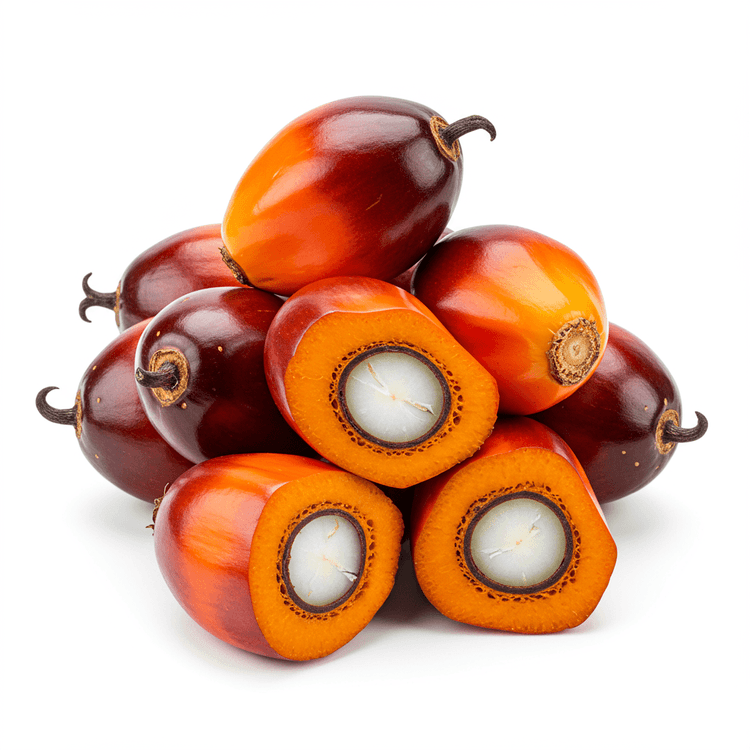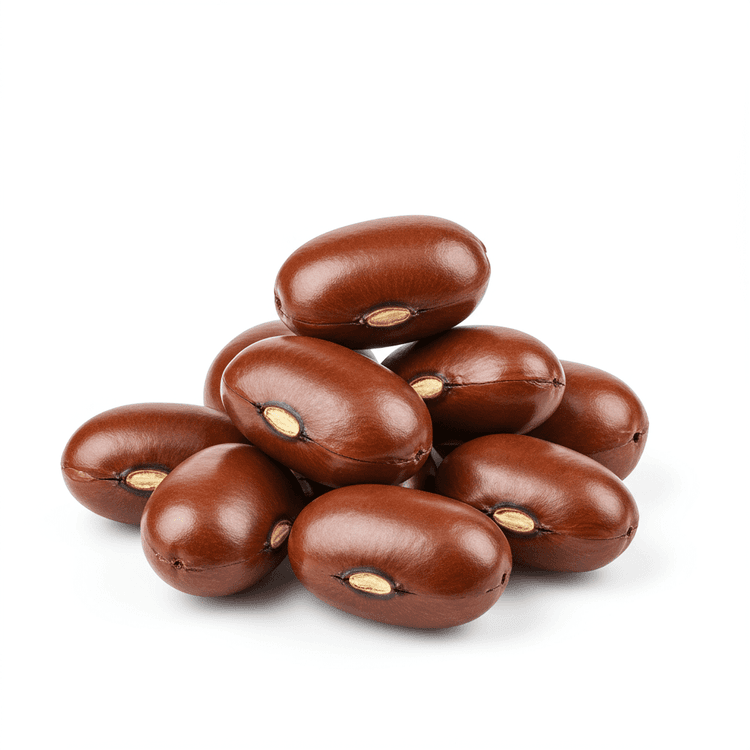
Palm Oil
Palm oil is a versatile, reddish-orange vegetable oil derived from the fruit of oil palm trees. Known for its neutral flavor and smooth texture, palm oil is widely used in cooking and baking due to its high smoke point and ability to enhance the richness of dishes. It is semi-solid at room temperature and contains a balanced mix of saturated and unsaturated fats, making it ideal for frying, sautéing, and creating creamy textures in recipes. Palm oil is also prized for its long shelf life and stability, making it a popular choice in processed foods and packaged goods.
Common Uses
- Used as a frying oil for deep-frying and pan-frying due to its high smoke point and neutral flavor.
- Incorporated into baked goods like cakes, cookies, and pastries to enhance texture and moisture.
- Added to curries, soups, and stews to create a rich, creamy consistency and boost flavor depth.
- Used in the preparation of margarine and spreads as a key ingredient for smoothness and stability.
- Commonly found in processed foods such as snacks, crackers, and instant noodles for its preservative qualities and texture-enhancing properties.
- Utilized in vegan and dairy-free recipes as a plant-based fat alternative to butter or lard.
Nutrition (per serving)
Nutrition (per serving)
Calories
884.0kcal (44.2%)
Protein
0.0g
Carbs
0.0g
Sugars
0.0g
Healthy Fat
46.3g
Unhealthy Fat
49.3g
% Daily Value based on a 2000 calorie diet
Nutrition (per serving)
Calories
884.0kcal (44.2%)
Protein
0.0g
Carbs
0.0g
Sugars
0.0g
Healthy Fat
46.3g
Unhealthy Fat
49.3g
% Daily Value based on a 2000 calorie diet
Health Benefits
- Rich in vitamin E, which supports skin health and boosts the immune system.
- Contains antioxidants that help combat free radicals and reduce inflammation.
- Provides a source of healthy fats that can support energy levels and brain function.
- May promote heart health when consumed in moderation due to its balanced fatty acid profile.
- Contains beta-carotene, which is converted into vitamin A, supporting eye health and vision.
- Supports nutrient absorption due to its fat-soluble properties.
Substitutes
Chefadora AI is here.
Experience smarter, stress-free cooking.
Storage Tips
Palm oil should be stored in a cool, dark place at room temperature to maintain its freshness and prevent oxidation. Ensure the container is tightly sealed to avoid exposure to air and moisture, which can lead to rancidity. If you live in a warm climate, refrigeration may be necessary to prevent spoilage, but note that the oil may solidify when chilled. Always use a clean, dry spoon when scooping to avoid contamination.
Marnirni-apinthi Building, Lot Fourteen,
North Terrace, Adelaide, South Australia, 5000
Australia

